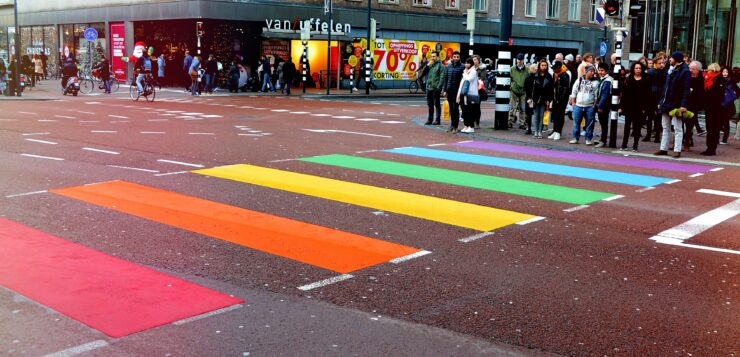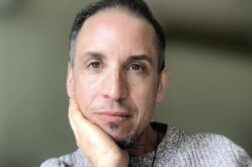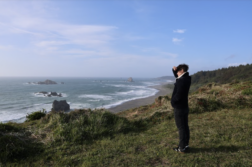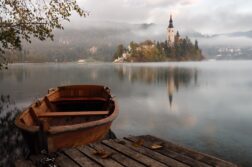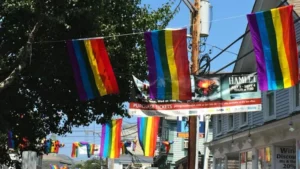
I was taken aback by something I saw on Twitter recently. In a tweet, since deleted, a nonbinary queer writer lamented their constant state of financial precarity, despite a string of achievements that indicated success. I took a writing course from this writer last year in one of the silver linings that arose from COVID: the Seattle-based writers’ hub Hugo House extended its reach, offering online courses with students and teachers living farther afield. My instructor was in New York City; I was in Vancouver.
There are many reasons the tweet stuck with me long after I’d scrolled past. Throughout the course, the writer came off as both highly skilled and personable. Their feedback was insightful, their tone eternally optimistic. I took the class not only to improve my writing, but also to communicate with a broader mix of people who identified as queer, embracing today’s more diverse menu of labels. I looked forward to Tuesday nights.
Midway through the course, my instructor’s first memoir was published, which I bought at a local independent bookstore. No Amazon order necessary. This book was in-demand. It was even reviewed, positively, in the Sunday New York Times Book Review, complete with the author’s picture. This writer had every reason to believe they had made it. I had to shake off writer envy and reflexive reverse ageism. They’d hit professional milestones in their twenties while I was still reaching for the stars in my fifties.
It’s no surprise an accomplished writer continues to struggle financially. Magazine and newspaper sales are in stark decline, leaving writers out of work. The stocked newsstands I so loved to browse are almost all gone, the scrappy survivors installing espresso machines and shucking greeting cards or socks. Many of my published submissions aren’t paid gigs. More than ever, this is an era of free content.
As I thought about the writer’s tweet, I momentarily put the blame on them. They’d moved from Florida to New York City, and everyone knows making it there comes with struggle and sacrifice. It’s the city that never sleeps because free time only comes in the wee hours of the morning.
Then I thought of my own trajectory. At a similar age, I’d moved from a town in East Texas to Dallas and then to Los Angeles. Austin would have been the cheaper option to find a place where I’d feel safer and be accepted, but all the hate against homosexuals had made me determined to never mess with Texas again.
Many of us in the LGBTQ+ community have fled Red states for Blue. New York City is far more expensive than Tampa. While the attraction to live in gay neighborhoods—West Hollywood, the Castro, Boystown, Chelsea—is less than it used to be, LGBTQ people still gravitate to urban areas and states where we can live more and fight less. Overall, it costs more to live in an urban area than some place rural. Blue zones seem to carry a higher price tag than Red. I haven’t done the research, but it’s a safe bet that one can get by with a lower budget in Alabama, Oklahoma, or Wyoming than in New York, Massachusetts, or California.
There is still a price we pay for our freedom. Despite having the right to marry in every state and protection from job discrimination, queer issues remain cheap-shots in in the large Red battleground swaths of the U.S. Safety is a basic need and, while Republicans politicize the topic with rants about policing, prison sentencing and the right to bear arms, those of us under the LGBTQ umbrella make our own moves in hopes for a safer life where we can connect and find another basic need: that feeling of belonging.
When I left L.A. after a five-year stint, I thought I figured out a thing or two about being gay. I learned it was okay to be me. I didn’t return to Texas though, instead clinging to the liberal West Coast, settling in another high-priced city, Vancouver, and renting an apartment with a roommate in the city’s gay hub, the West End, until I found a partner and we moved to a slightly less expensive part of the city.
After a bad breakup, I started over, staying in Province while trying life in a more affordable, rural area outside a town of 3,500. It nearly killed me. Literally. The isolation and the sense I was the only single, gay guy around contributed to me feeling suicidal and being locked in a Vancouver psych ward. My medical team—yes, it was serious enough for me to have a team—implored me to move. It wasn’t so much about thriving as surviving. I sold my house at a loss, a glaring anomaly in British Columbia real estate. I googled Canadian cities to move to, the bigger the better.
I found myself back in Vancouver, COVID lockdowns batting away a planned move to Toronto. Along with Montreal—not an option since I can’t speak French despite years of Duolingo—these are the most expensive places to live in Canada. As a single, gay man, higher prices seemed better than higher stakes.
I am happy my younger writer colleague is sticking it out in New York City, if that’s where they feel truly connected. I’ve eaten more peanut butter sandwiches and generic macaroni and cheese than I would have liked, to stay in places where there are more LGBTQ people. Quality of life comes with a higher price tag, but I’ve found a place where I feel safest and where I can be my gayest. It’s worth it.
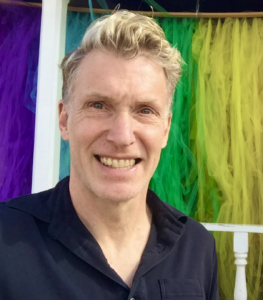 Gregory Walters is a writer living in Vancouver. His work has been published in The New York Times, The Globe, CBC, Writer’s Digest, Funny Times and Cottage Life. He posts weekly entries on his blog, Aging Gayly, and is currently seeking an agent and publisher for his novel, Dead in Gay Years.
Gregory Walters is a writer living in Vancouver. His work has been published in The New York Times, The Globe, CBC, Writer’s Digest, Funny Times and Cottage Life. He posts weekly entries on his blog, Aging Gayly, and is currently seeking an agent and publisher for his novel, Dead in Gay Years.


